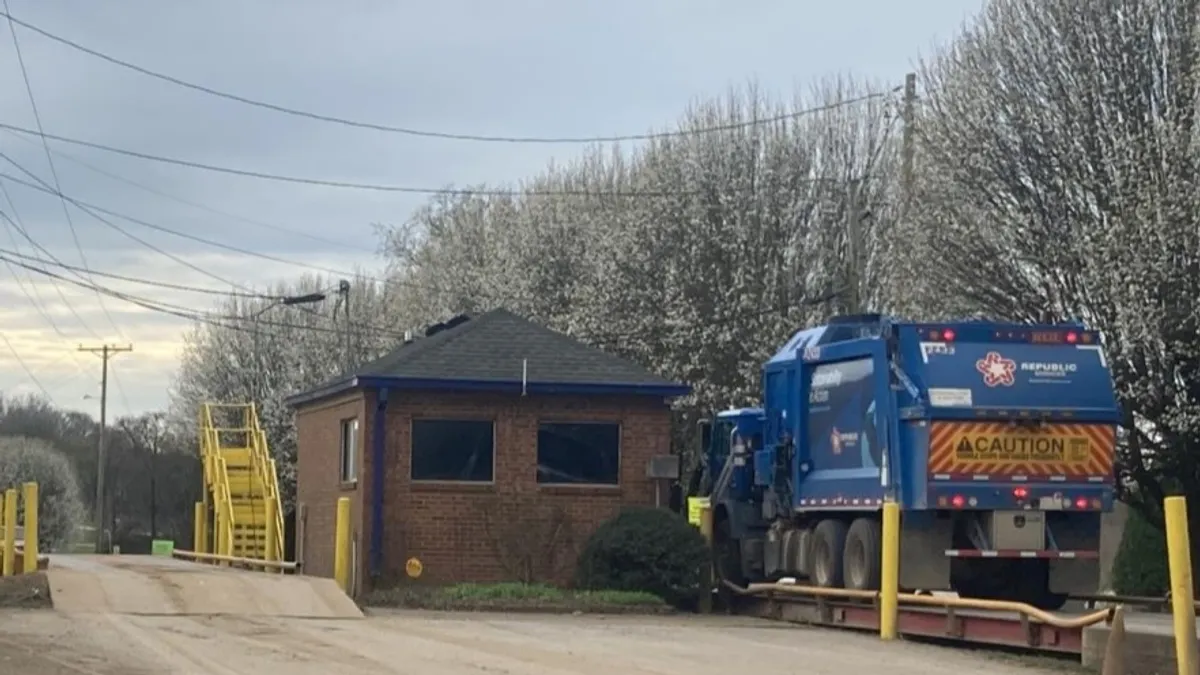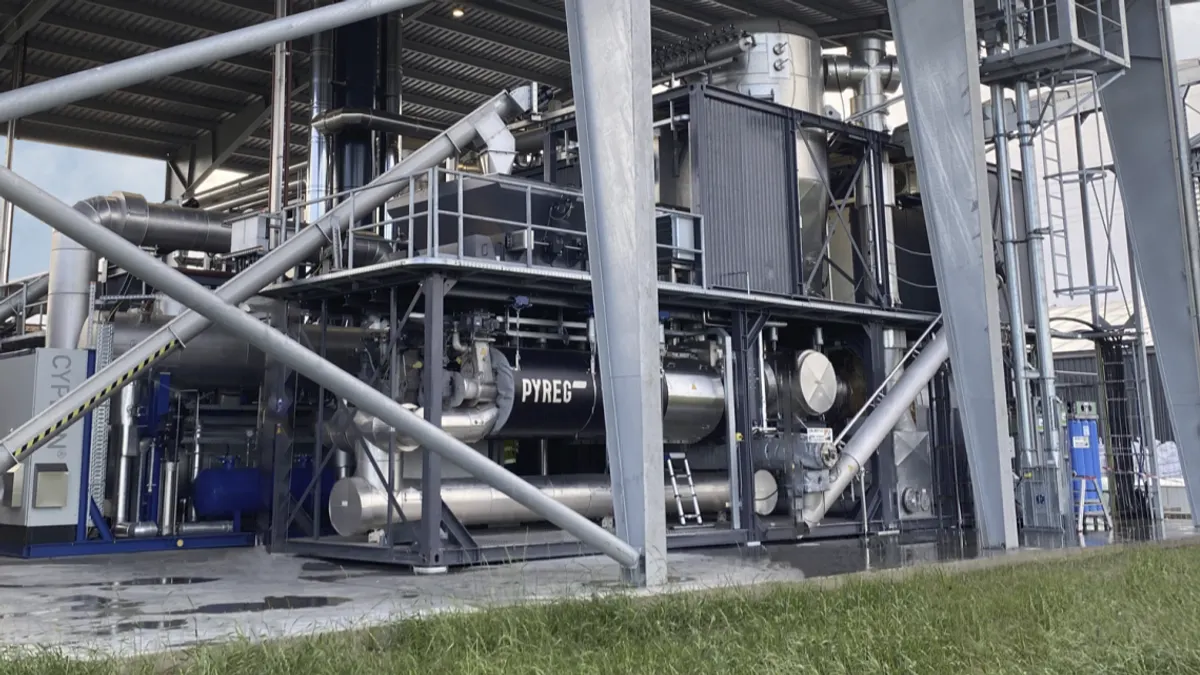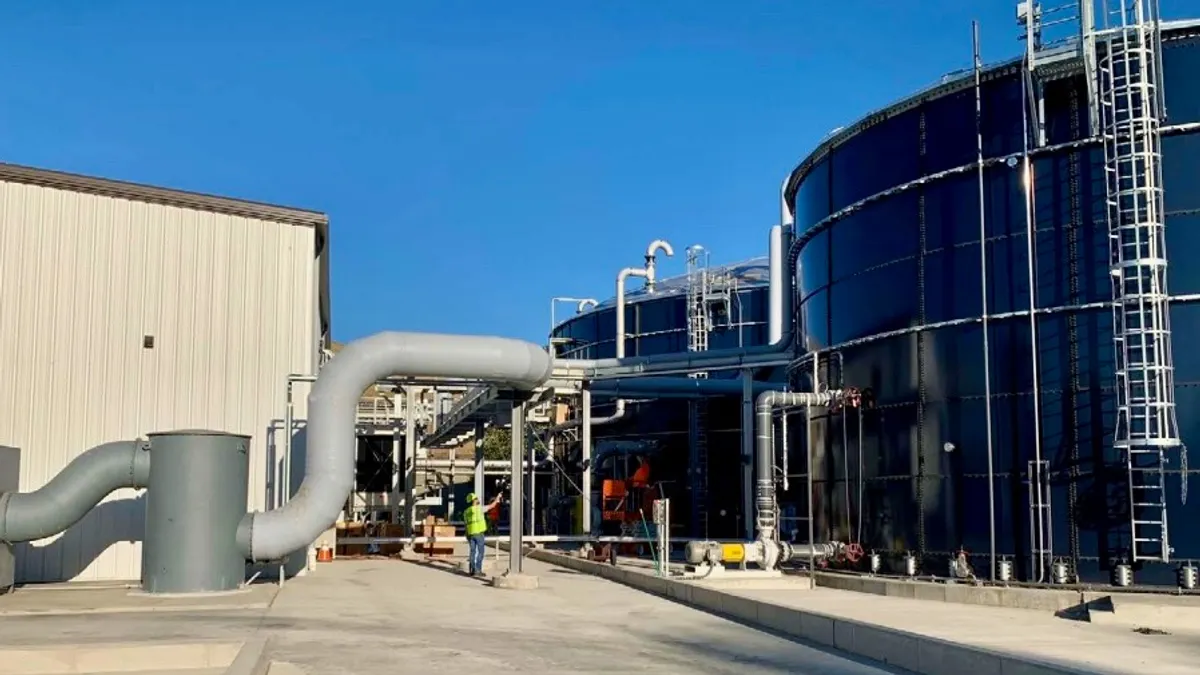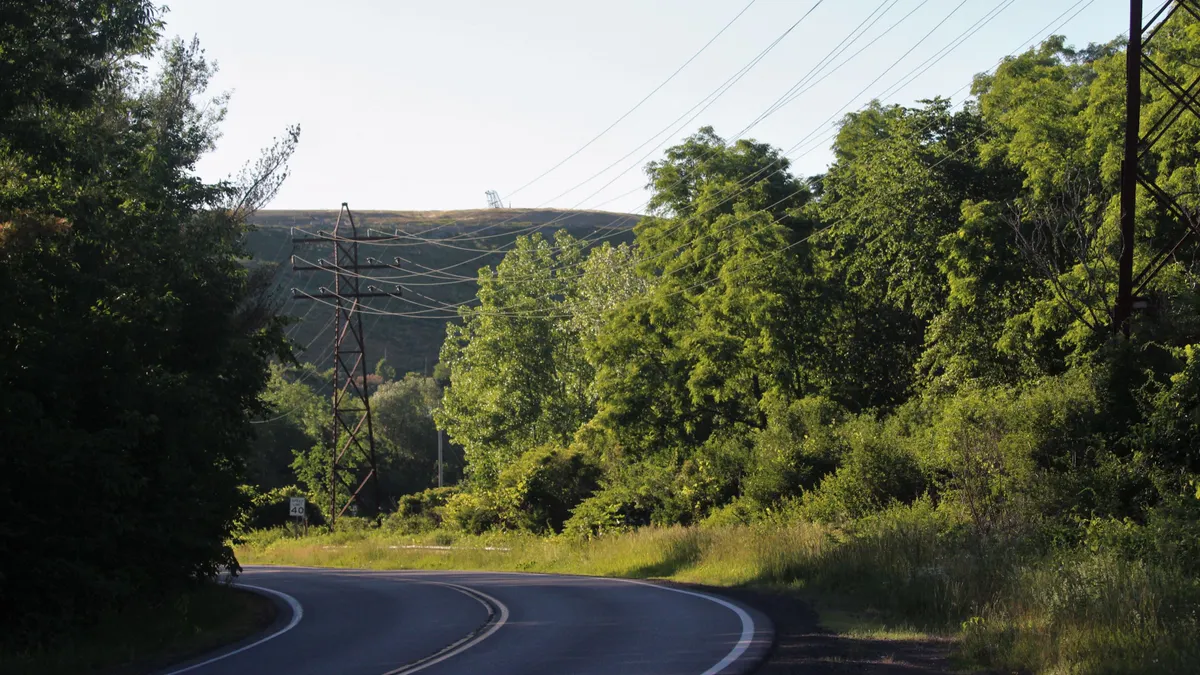The first day of informational sessions at the Solid Waste Association of North America's SWANApalooza 2016 launched with great debate as hundreds of stakeholders gathered to discuss crucial matters shaping the industry. During the second keynote discussion, excitement was especially high as three executives contested one important question: Should organics be banned from landfills?
The session was held just after a discussion in which Mathy Stanislaus, assistant administrator for the EPA's Office of Land and Emergency Management, examined the first-ever national food waste reduction goal, calling for a 50% reduction by 2030. Stanislaus said there are many methods of tackling food waste (improving data, public awareness, new infrastructure, etc.), and there is also a large focus on how to handle food that is wasted, with many suggesting the banning of organics from landfills.
But a ban isn't the only option. And that's why Matt Cotton, Pat Sullivan, and Susan Robinson joined a session titled, "In or Out?: What is the best way to manage organics?" The three panelists introduced themselves with wildly different opinions; Cotton, principal of Integrated Waste Management Consulting, expressed a strong support for landfill bans, while Sullivan, senior vice president at SCS Engineers, favored letting each municipality decide what is best for the community. Robinson, director of federal public affairs for Waste Management, rode the fence while keeping economics in mind.
Below are the answers that each panelist had when questioned about banning organics from the landfill (Editor's note: the following responses have been edited for clarity and brevity).
Moderator Rich Allen: There are 26 states that have some sort of yard waste ban [from the landfill], and five of these states also have some sort of food waste ban. What are the pros and cons of these bans and do you anticipate that they will grow?
Sullivan: I am not in favor of the concept of an outright ban. I am in favor of evaluating the best place for organics to go. It may not be the landfill. But there are landfills that are receiving organic waste, managing it well, and turning that into energy, and in places where we've been able to overturn some of those bans, the compromise that actually was reached was that the ban would apply except in places where that waste was being sent to a landfill that did have a gas capture system, that was in compliance with the regulations, and did recover that gas and turn it into energy. Remember, we have existing projects that are already dependent in the organics in the landfill and maintaining those projects and their viability, and we may lose that…But that’s a decision that that community should be able to make…They may decide that the best and highest use for those organics is something different than the landfill. If that’s their decision, then that’s what should happen and they can do what they need to do to manage that material.
Robinson: We always say no ban without a plan. Part of that is enforcement. A ban without enforcement is a disaster waiting to happen, and we've seen that in some instances. So when there is enforcement that drives investment … we can see a lot of activity happening to create efficient management of different types of materials. Though, as I have spent time in the last couple of years watching this happen in the recycling industry, I have a couple of concerns about tinkering with the law of supply and demand … One of the things that's so important is making sure you have the demand side available before pushing the supply side because what happens is your pricing is going to adjust accordingly. If I am looking for a feedstock and I know I can get that feedstock because it's just going to keep coming no matter what happens, I'm not going to pay you more than I have to. And what that does then is it pushes your cost down to the generator. So we'll end up paying more from a generator perspective and less on that end market demand side. So I guess one of the concerns that I have is ... to be very careful when we start to dabble in that issue of supply and demand and make sure that we allow for elasticity.
Cotton: You're absolutely going to see more states developing restrictions … Maybe [a ban] works for your community, maybe it doesn’t. Maybe it works for your state, maybe it doesn't ... There's no question in my mind you'll absolutely see more states develop more restrictions on organics in the landfills. I'm OK with them banning hoverboards on planes; there's reasons why we ban certain things. I don't want a hoverboard exploding on a plane. If I lived in lowlands Coastal South Carolina, I don't think I'd be OK with putting more organics in the landfill so I can justify [a more robust gas collection system] … I'm a huge fan of landfill gas collection, but it's a pollution control device. It's not a profit center. It's a pollution control device. Should we do it? Absolutely. Should we do it as best as we can? Absolutely. Should we have the tail wag the dog and put the lead back in gas cause there's a market for lead? I mean, you know, this is the tail wagging the dog. So yes, we should get organics out of the landfill and yes, we will see more states banning organics.
The panelists took questions related to the impact of greenhouse gas emissions on different organic waste disposal methods, and how different regions of the United States may benefit from each method. But in the end the panelists agreed there were no answers to satisfy all opinions.
"We've have had this discussion multiple times," said Sullivan, regarding he and Cotton. "I'm not sure if there's ever been a winner or loser to it."

















